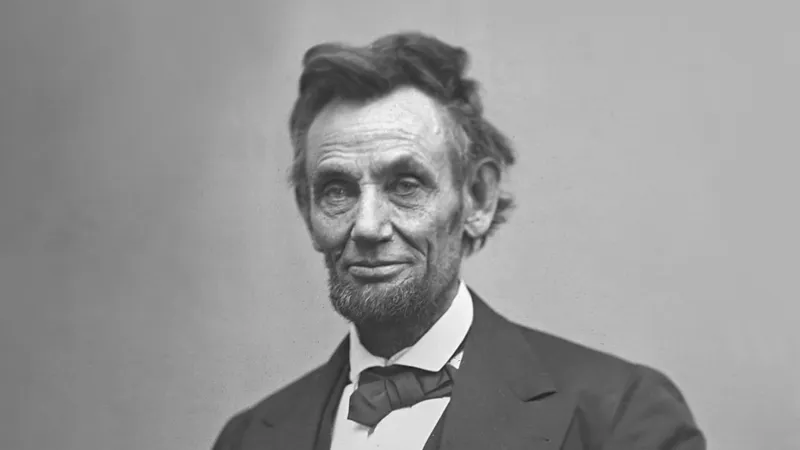
In the upcoming documentary Lover of Men: The Untold History of Abraham Lincoln, director Shaun Peterson takes a deep dive into the speculation surrounding the 16th president’s relationships with men. Set to hit theaters this Friday, the film doesn’t aim to definitively label Lincoln’s sexuality but instead explores his close bonds with four men who, at different times, shared his bed.
Peterson stresses that the focus of the documentary is not on making a case for Lincoln being gay but on understanding the nature of male relationships during the 19th century. “It’s important to realize that our modern obsession with labeling sexuality is a relatively new phenomenon,” Peterson explains.
“In Lincoln’s time, close emotional and even physical relationships between men were common and not necessarily tied to sexual identity.”
The documentary highlights Lincoln’s friendships with four men: Billy Greene, Elmer Ellsworth, David Derickson, and, perhaps most notably, Joshua Speed. These relationships, the film argues, offer a glimpse into a time when homosocial bonds were much more accepted and not as strictly defined as they are today.
Finn Wolfhard’s Sexuality: Unraveling the Mystery – Is He Really Gay?
A Look at Lincoln’s Friendships!
Lover of Men delves into Lincoln’s life, starting with his humble beginnings in southern Indiana, and follows his rise from a young lawyer to the president who led the nation through the Civil War. Throughout, the film sheds light on his relationships with these men, including Speed, whom some scholars believe to be the love of Lincoln’s life.
The film uses a mix of historical letters and expert commentary to explore these friendships. One letter from Billy Greene, for example, describes Lincoln’s thighs as “perfect as a human being could be,” raising questions about the intimacy of their relationship. Meanwhile, letters between Lincoln and Speed, particularly after they stopped living together, have a distinct quality of love letters.
Is NLE Choppa Gay? What His Latest Single ‘Slut Me Out 2’ Reveals
The Letters and What’s Missing
One of the documentary’s key points is not just what was written, but what’s missing. Professor Thomas Balcerski, an expert featured in the film, points out that some letters between Lincoln and Speed hint at correspondence that no longer exists. “There are gaps in the record, and sometimes those absences speak volumes,” Balcerski says. “It’s possible that the men destroyed some of their more intimate letters.”
In the 19th century, relationships between men were often more emotionally open, but modern scholars face resistance when interpreting these friendships through a contemporary lens. John Stauffer, a Harvard historian, touches on this in the film.
He notes that many historians struggle with the idea that Lincoln, often hailed as the greatest U.S. president, could have had same-sex relationships. “There’s a long-standing bias against accepting homosexuality in historical figures,” Stauffer explains.
“It’s as if Lincoln couldn’t be both a great leader and someone who had romantic feelings for another man. That mindset reflects outdated prejudices about sexuality.”
Is Jeff Goldblum Gay or Straight? Breaking Down the Actor’s Love Life and Public Image
Challenging Historical Narratives!
Lover of Men challenges viewers to rethink the way we interpret history. Peterson’s film doesn’t aim to offer any conclusive answers about Lincoln’s sexuality but instead encourages a more nuanced understanding of human relationships.
As Balcerski notes, younger generations, especially those in Gen Z, tend to find it strange that historians have resisted the idea of Lincoln’s intimate friendships being anything more than platonic. “Historians are people too,” he says. “They’ve been shaped by the values of their time, and only now are we beginning to question these old assumptions.”
Ultimately, the documentary offers a fresh perspective on one of America’s most beloved figures and asks audiences to consider the complexity of human relationships, both past and present.
